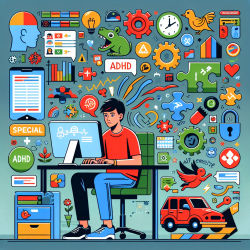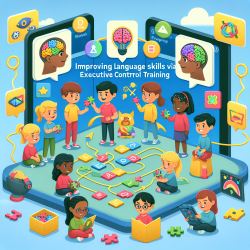Attention-deficit/hyperactivity disorder (ADHD) is a prevalent condition that significantly impacts adolescents' daily functioning. Recent research by Hareendran et al. (2015) sheds light on the development and initial testing of a self-report instrument designed to evaluate functional outcomes in adolescents with ADHD. This blog aims to help practitioners enhance their skills by implementing the findings from this research or encouraging further investigation.
Understanding the Research
The study by Hareendran et al. (2015) involved a comprehensive process to develop a self-report instrument that captures the perspectives of adolescents with ADHD. The research highlighted the importance of including adolescents' viewpoints to evaluate treatment outcomes effectively. The instrument was developed through several stages, including literature reviews, interviews with clinicians and teachers, and cognitive interviews with adolescents and their caregivers.
Key Findings
The research identified several critical aspects of ADHD's impact on adolescents' functioning:
- Everyday Activities: Adolescents reported difficulties with tasks requiring attention, such as schoolwork, household chores, and extracurricular activities.
- Social Interactions: Challenges in interacting with family members, peers, and authority figures were common, often leading to stress and anxiety.
- Emotional Regulation: Adolescents experienced emotional difficulties, including stress and anxiety, related to their ADHD symptoms.
Practical Implementation
Practitioners can use these insights to enhance their therapeutic approaches:
- Incorporate Self-Report Instruments: Use self-report tools to gather adolescents' perspectives on their ADHD symptoms and their impact on daily life. This can provide a more comprehensive understanding of their experiences.
- Tailor Interventions: Develop individualized intervention plans that address the specific functional challenges reported by adolescents, such as difficulties with schoolwork or social interactions.
- Monitor Progress: Regularly use self-report instruments to monitor changes in adolescents' functioning and adjust treatment plans accordingly.
Encouraging Further Research
While the self-report instrument developed by Hareendran et al. (2015) provides valuable insights, further research is needed to validate and refine these tools. Practitioners are encouraged to participate in or support ongoing research efforts to improve the assessment and treatment of ADHD in adolescents.
To read the original research paper, please follow this link: Evaluating functional outcomes in adolescents with attention-deficit/hyperactivity disorder: development and initial testing of a self-report instrument.










